While not the strongest or most powerful character in the Marvel Cinematic Universe, Tom Holland's Spider-Man possesses a variety of superpowers that make him one of the most versatile heroes. Over the years, his comic book counterpart has had a wide range of abilities, from run-of-the-mill genius-level intellect (for comic book standards) to magical horse-whispering powers, but the MCU, thankfully, left aside many of his weirdest talents in order to fit the character into its established universe. Instead of cosmic powers and nuclear mutations, the MCU's Peter Parker boasts brand new perks derived from the successful deal between Sony and Disney that makes him stand out from all previous iterations.
Tom Holland's two live-action predecessors approached Spider-Man's superpowers in their unique style. Departing from most versions of the character, Tobey Maguire's Peter Parker shot organic webs, courtesy of James Cameron and his first draft of the script. Director Sam Raimi kept the idea in his trilogy and applied it to a financially-struggling Peter Parker until Sony decided to reboot the franchise with The Amazing Spider-Man, where Andrew Garfield introduced the concept of mechanical web-shooters to live-action. With less muscle but more agility and more web-slinging acrobatics, Garfield's Spider-Man stuck around for only two movies before Marvel welcomed back the character in Captain America: Civil War, adapting him to its timeline with Holland under the mask.
Some of the key differences in Holland's portrayal of Spider-Man in the MCU are his young age and his role as an apprentice in a vast universe of already established superheroes, but his abilities also received a major upgrade. Under Tony Stark's (Robert Downey Jr.) wing, Peter Parker enjoyed a head-start with state-of-the-art gadgets on top of his organic skills. So far, these are the superpowers and technological advantages the MCU's Spider-Man has exhibited.
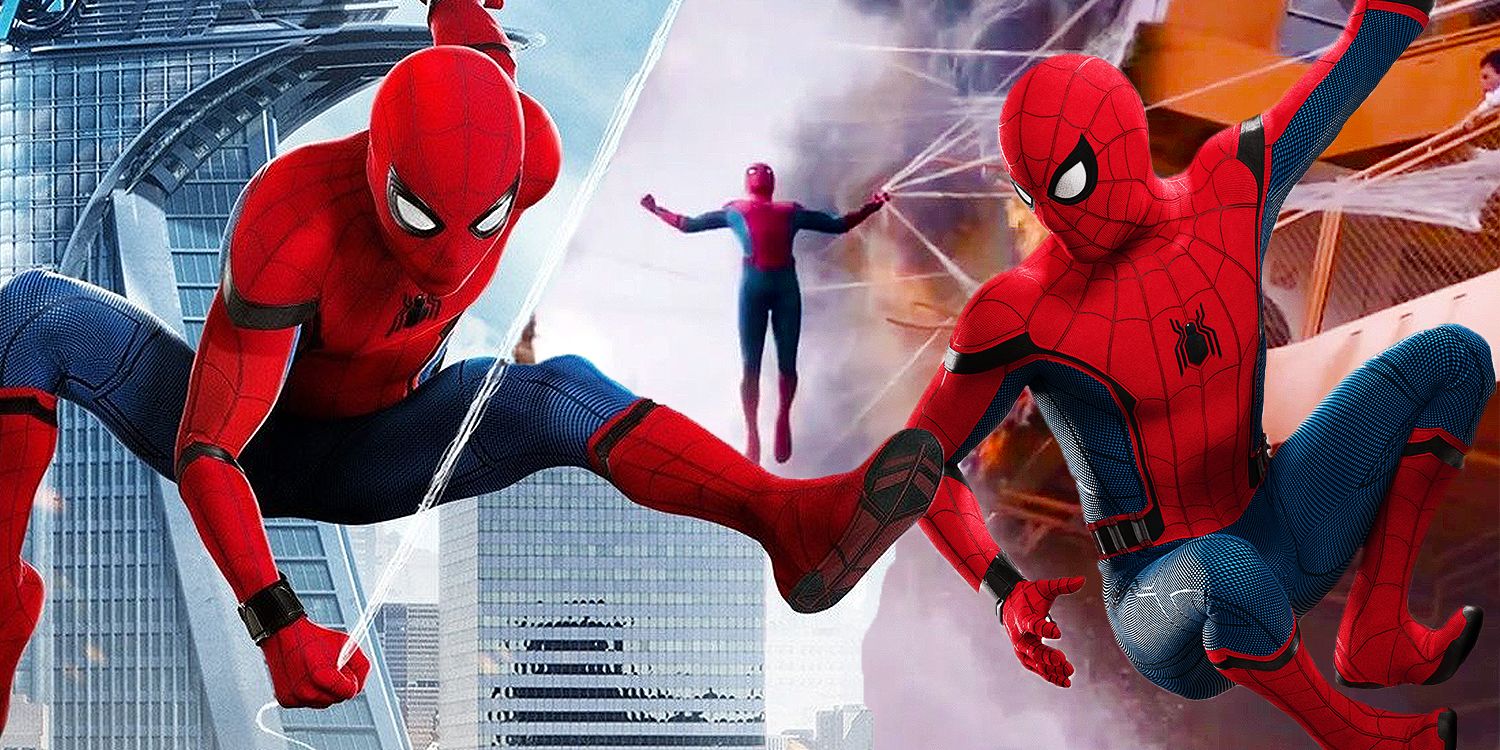
With Hulk (Mark Ruffalo) singlehandedly incapacitating Chitauri Leviathans and Captain Marvel (Brie Larson) flying through massive ships like a knife through butter, Spider-Man's physical power can easily go unnoticed. Yet, he has accomplished unprecedented feats of strength that place him in the top tier of superpowered humans in the MCU. The first evidence of Peter Parker's incredible strength is the footage Tony Stark shows him when he recruits him for his team in Captain America: Civil War. In the video, Peter stops a car before it collides with a bus and immediately leaps out without a scratch. Tony himself measures "3000 pounds, 40 miles an hour", but that's just the beginning. Peter has repeatedly surprised himself with how tough he can become. In Spider-Man: Homecoming, he holds the two halves of a ferry for several excruciating seconds before Tony arrives to help him. Later in the same movie, he manages to lift several tons worth of rubble that Vulture (Michael Keaton) drops on top of him. He also puts up a fight against Captain America (Chris Evans), Cull Obsidian (Terry Notary), and Thanos (Josh Brolin), and survives to tell the tale.
Spider-Man couldn't appear in a film without his famous agility. In fact, Tom Holland's background in gymnastics is a major step-up that makes the character's physicality all the more authentic. Peter's swift moves are key to evade most of Team Cap's attacks in Civil War and keep up with Vulture in Homecoming, although his proclivity for distraction often leads him to lose his focus and miss the mark. For instance, when he ties up Giant-Man (Paul Rudd) with his webs in the battle between the Avengers at the airport, he could easily avoid a colossal backhand if he kept his eyes on his target, but his constant quips earn him a trip back home. On the contrary, his undivided focus during his final fight with Mysterio (Jake Gyllenhaal) allows him to make the most out of his agility and destroy hundreds of drones. It's also his agility that lets him swing around New York with ease, even when holding Michelle Jones (Zendaya).
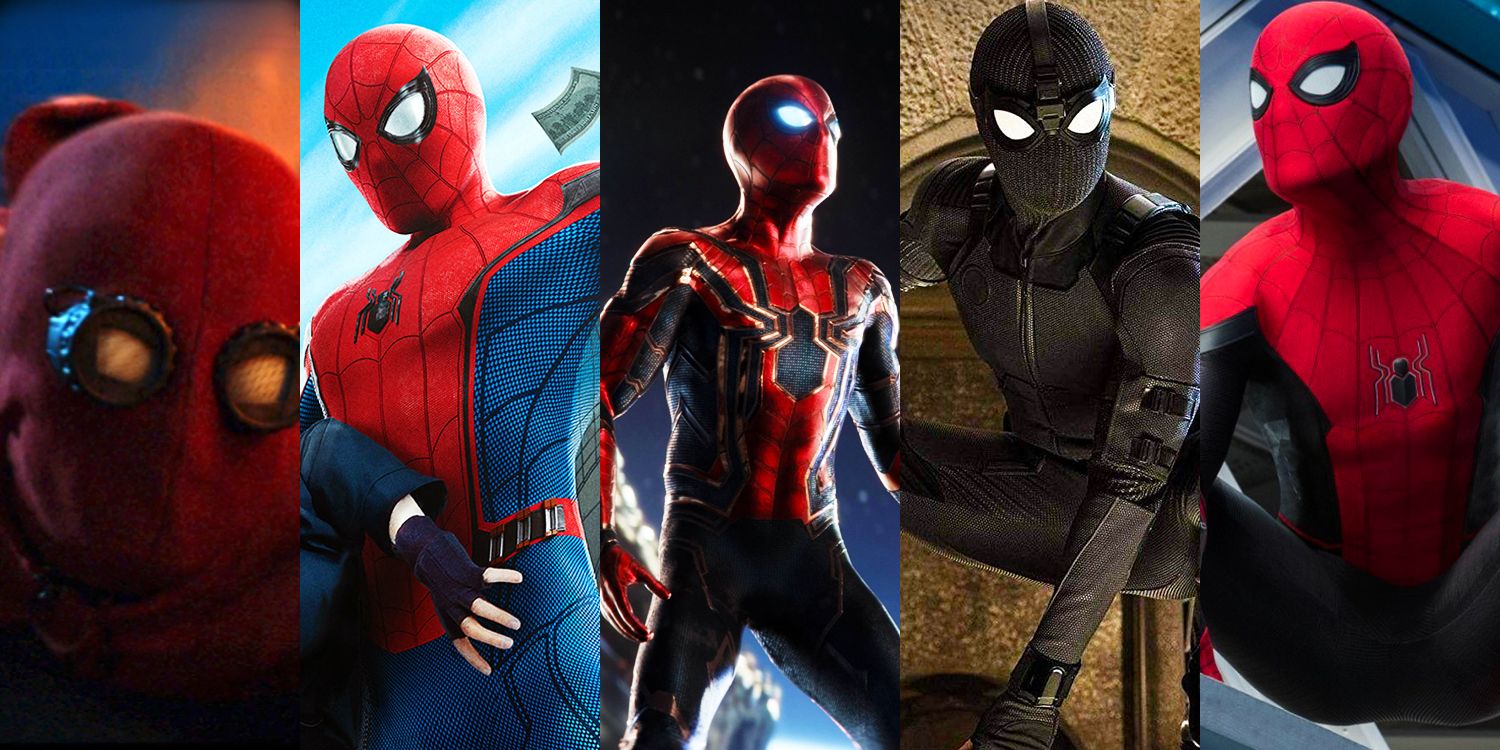
The MCU's Spider-Man is the first cinematic version of the character to have technologically-enhanced suits. Following his homemade costume, Peter Parker receives Tony Stark's rendition of his classic webbed getup, complete with a fully-integrated AI system and retractable spider-wings. Although the adjustable lenses are Peter's creation, Tony also perfects them for his updated version. Like a kid with a new toy, Peter gets too attached to the suit and disobeys Tony's orders to keep a low profile, causing his father figure to take it away until Peter stops being so dependent on all of its features. These include a drone installed in the spider emblem on the suit's chest, a utility belt full of web cartridges for the wrist shooters, augmented reality assistance, a parachute, and even a built-in heating system. Of course, the most groundbreaking feature is Karen (Jennifer Connelly), the AI, which assists Peter in combat and constantly offers him useful information.
Although Peter chooses to stay true to his "Friendly Neighborhood Spider-Man" motto and keep his classic costume, the arrival of the Black Order to Earth at the beginning of Avengers: Infinity War forces him to accept the fan-favorite Iron Spider suit from Tony. This shiny new costume is made out of bulletproof nanotech just like Iron Man's Mark L and Mark LXXXV armors, and comes with four spider-legs on the back that help Peter gain stability and attack multiple enemies at the same time. Avengers: Endgame also showed what the "Instant Kill" mode can achieve, which speaks for itself: the suit finds the most efficient way to murder an opponent. In Spider-Man: Far From Home, Peter wears the all-black Stealth Suit for night missions, which draws inspiration from the Noir Spider-Man from the comics and earns him the alternate nickname of Night Monkey. After that, Peter uses some schematics left behind by Tony Stark in his private jet to create the Upgraded Spider-Man Suit - a heavily-reinforced costume that withstands numerous attacks from Mysterio's drones and deactivates them using its improved web-shooters.
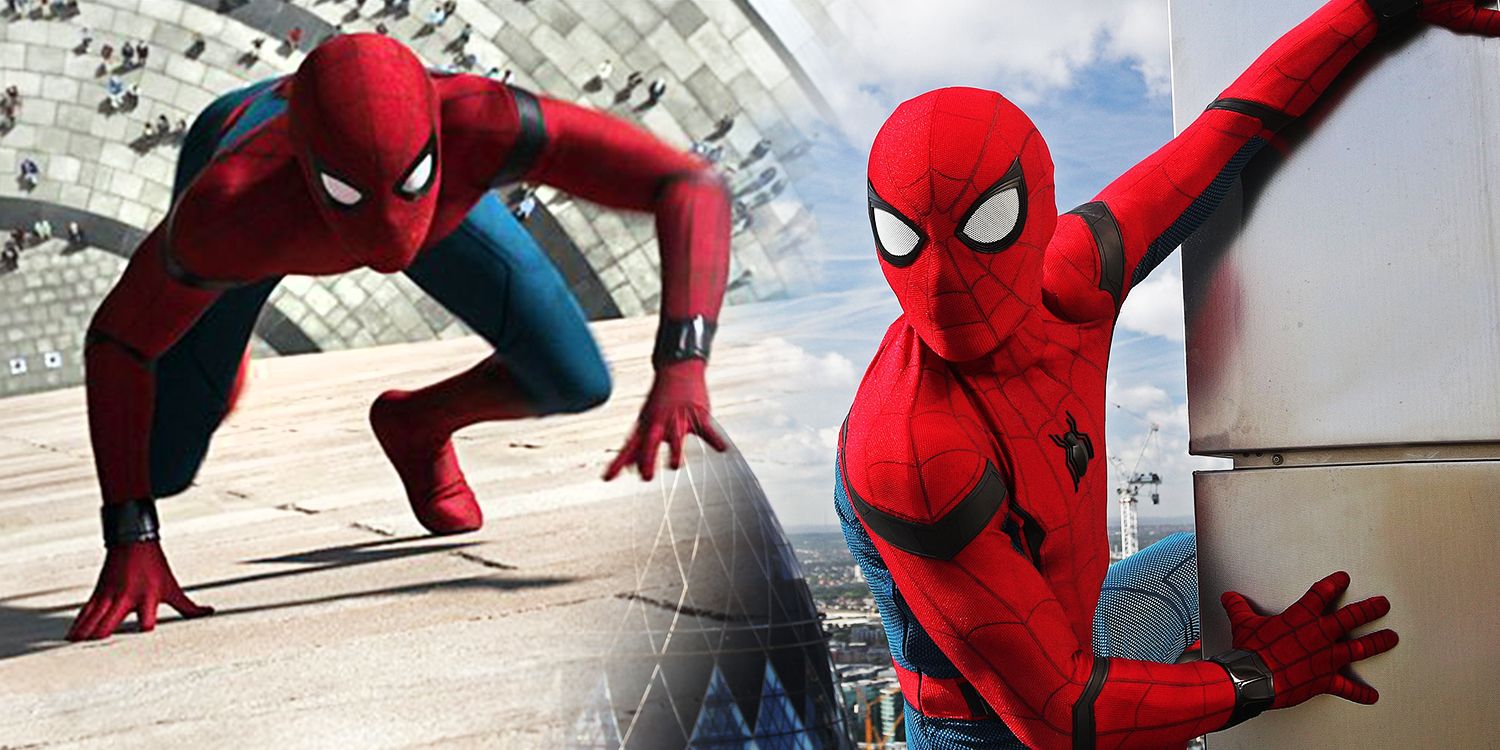
Little is known about the spider that bit Tom Holland's Spider-Man. His origin story needed a break anyway, but Spidey's organic ability to stick to any surface and climb walls without any effort suggests the arachnid granted him this skill without much difference from all the previous iterations. Likewise, it's still a mystery how he manages to use it through the fabric of his suits, but it's known that he can choose when to turn it on and off in any area of his body. With his strength and agility, this becomes a very useful tool in combat. For instance, in Spider-Man: Homecoming, he's able to grab a bank robber with his foot and throw him into a wall while he uses both hands to hang from the ceiling. The adhesiveness is strong enough to withstand the pull from one of the robbers' Chitauri weapons and also gives Peter an extensive range of motion to fight on concrete, metal, brick, and even glass. Spider-Man can also stand completely sideways, as shown when he catches his web fluid cartridge on a fire escape while eating a churro.
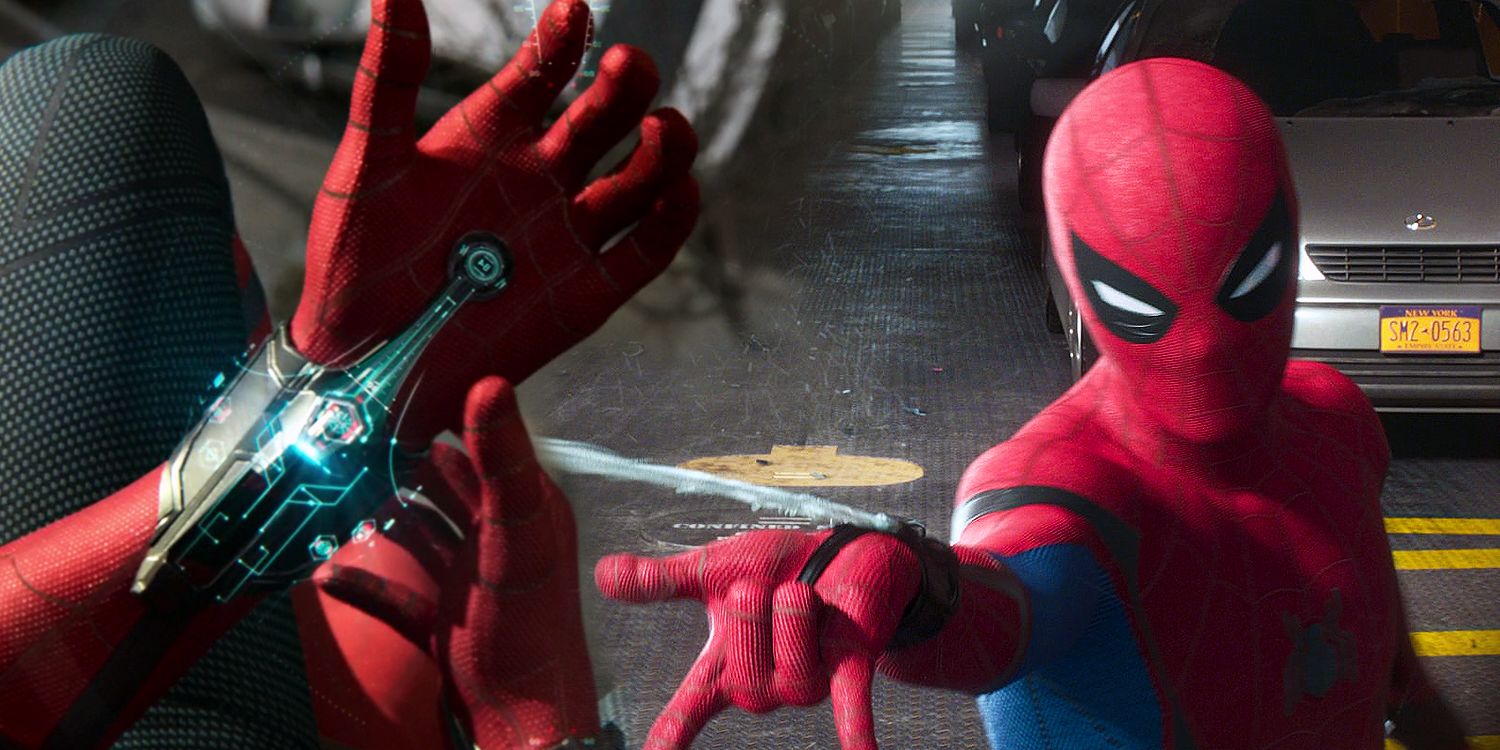
If Spider-Man didn't incorporate web-shooters to his wall-crawling routine, no superstrength or superagility would save him from splattering on the ground sooner rather than later. Fortunately, the MCU's Spidey has an extensive selection of spiderweb creations integrated within his suit, with no less than 576 possible combinations. The first version of the web-shooters is fully designed by Peter Parker and could only be used to shoot linear threads - his preferred method of transportation - but Tony Stark's remodeling of the suit gave Peter the possibility of mixing up his fighting strategy with web grenades, stun webs, nets, pulleys, ricochet webs, and a cozy hammock - plus an added bonus of GPS-powered, spider-shaped tracers he can shoot from his wrists to track his enemies and a light signal in the shape and color of his mask. Spider-Man's webs are made from Peter's own formula - a synthetic material made from ordinary chemicals that he usually hides under a set of lockers at his school. This material is strong enough to withstand the strength of Thanos and the tension from Spider-Man's constant pulling and slinging, but it can be cut and is bounded by the wrist shooters' limited supply.
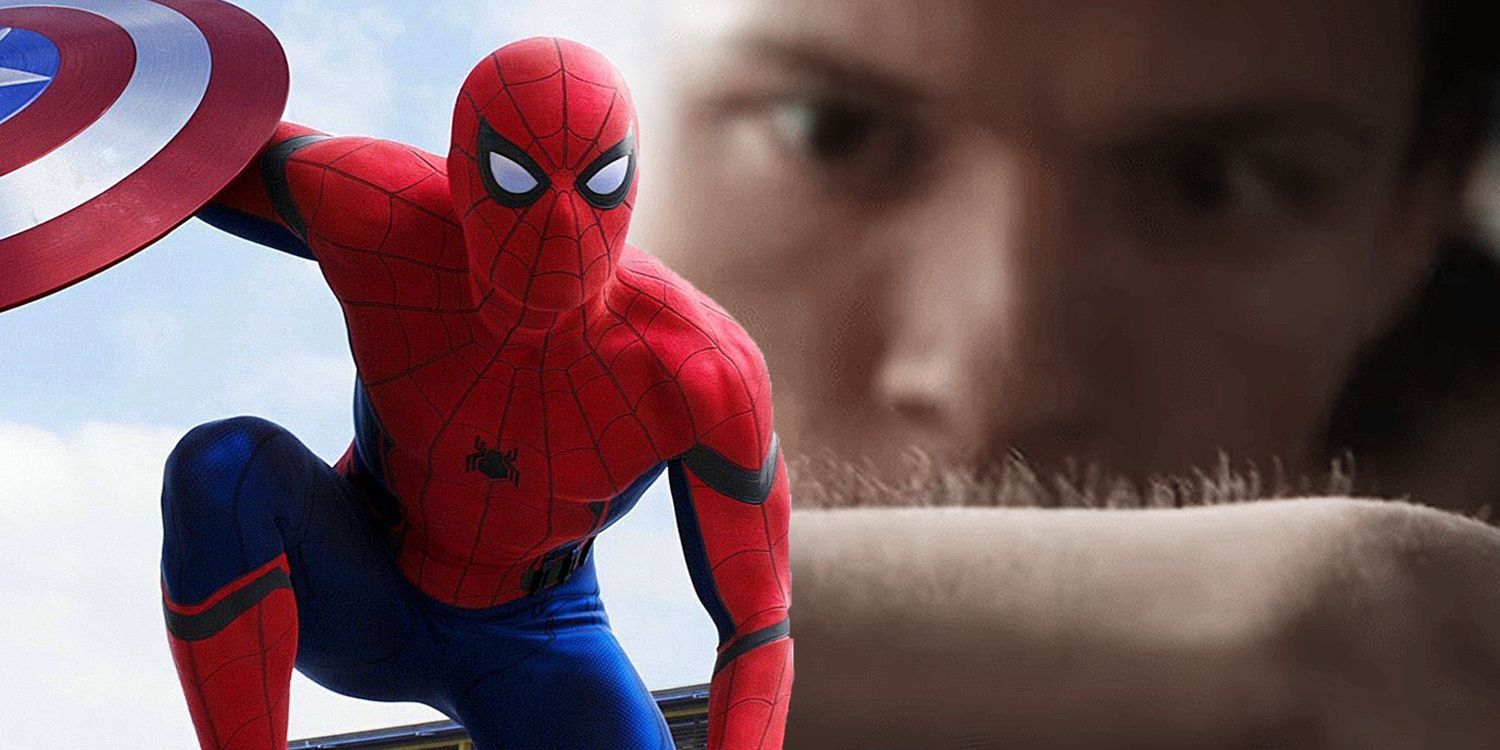
Despite Peter Parker's deficient ability to identify threats before they happen throughout most of Spider-Man: Far From Home, his iconic spidey-sense is subtly introduced in Captain America: Civil War when he makes his heroic entrance and detects Ant-Man instants before he grows and kicks him in the chin. The other major instances where Peter's sixth sense awakens is when he fights Falcon (Anthony Mackie) and the Winter Soldier (Sebastian Stan) the moment he evades a heavy fixture thrown by the super-soldier without looking, and when his arm hair springs up right after the Black Order's Q-Ship arrives on Earth in Avengers: Infinity War.
Peter's precognitive perception isn't limited to immediate physical threats, though - it also warns him about the impending disintegration derived from Thanos' snap and gives him a heightened level of spatial awareness that allows him to disable Mysterio's drones with his eyes closed and detect the villain when he's invisible. However, his unwillingness to trust it diminishes its effectiveness - something that Aunt May (Marisa Tomei) notices and makes her especially observant of what she names "the Peter Tingle".
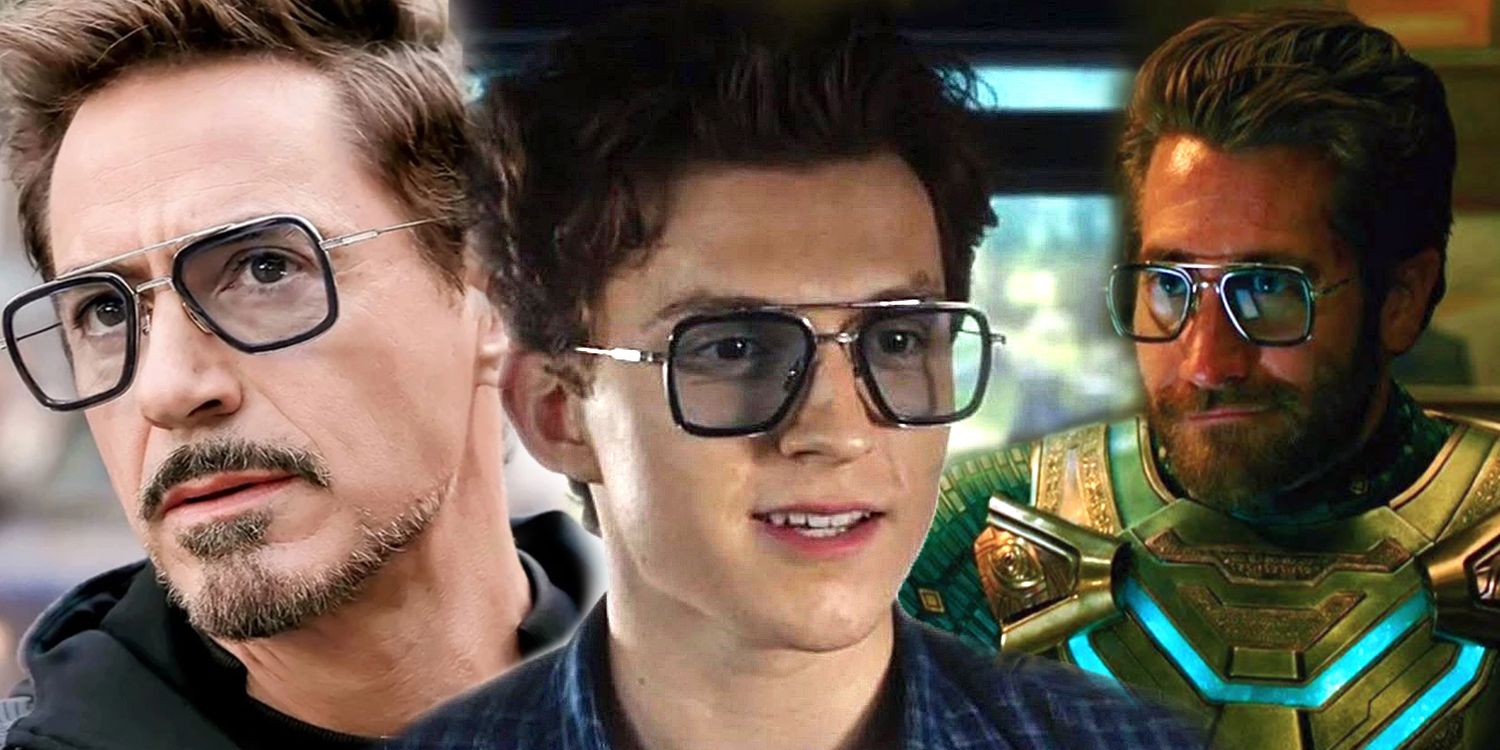
On top of the Spider-Suit's Karen AI, Peter Parker inherited the augmented reality system E.D.I.T.H., which - in typical Tony Stark fashion - stands for "Even Dead I'm The Hero". The system is lodged in a pair of sunglasses and gives Peter unlimited access to the world's personal data. It also enables him to use Stark's satellites, combat drones, and weapons. With it, Peter is able to peek into other people's private chats in real-time and call for a drone strike on one of his classmates. Combined with Mysterio's holographic illusion system a.k.a. "B.A.R.F", E.D.I.T.H. can create hyper-realistic creatures that cause real destruction based on the weaponry of the drones. The sunglasses come with a safeguard that requires the owner to explicitly grant permission to another user in order to pass them on, but even then they prove to be too much responsibility for Peter, as he entrusts E.D.I.T.H. to Mysterio briefly after meeting him for the first time.
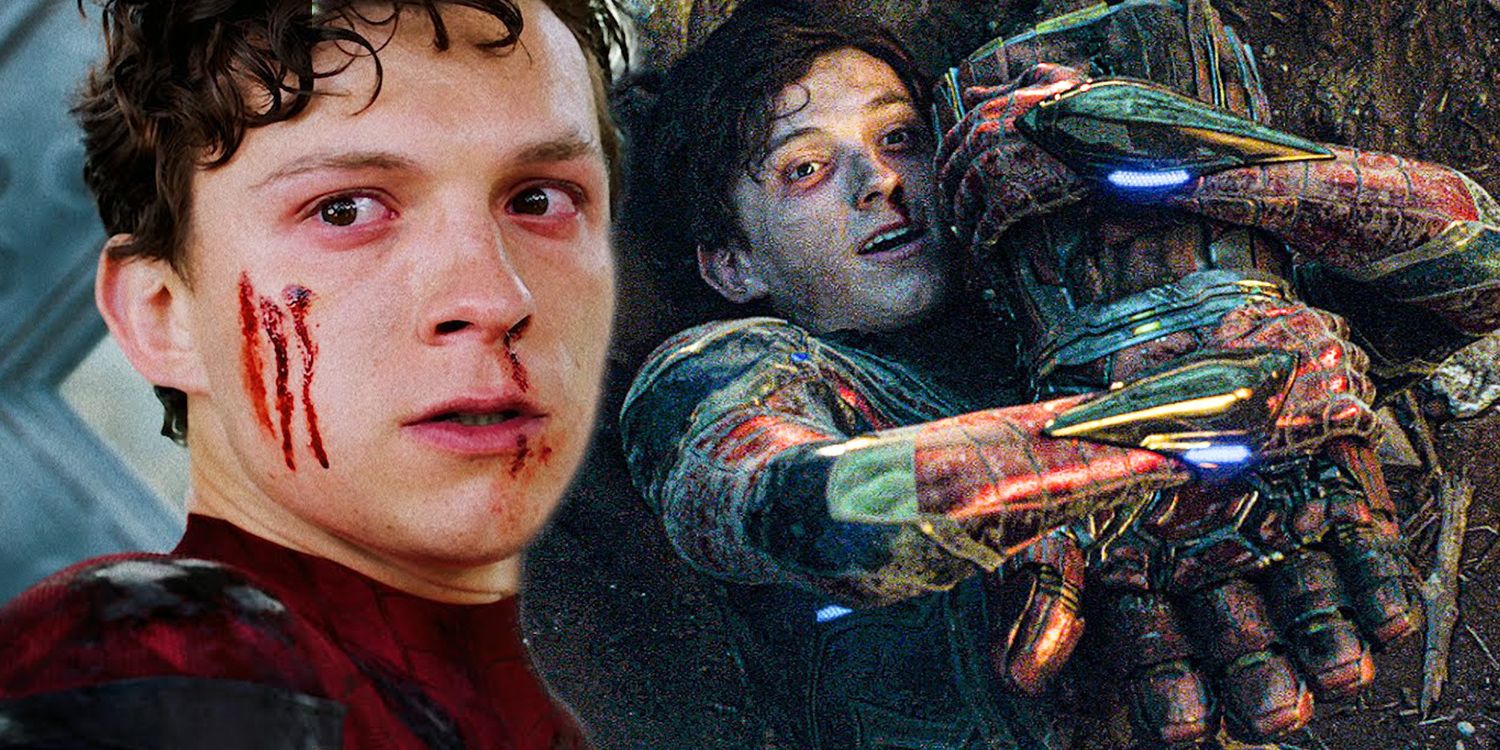
The superpower that allows the MCU's Spider-Man to use the rest of his abilities without dying in the process is his incredibly enriched physiology. Peter Parker's body is able to tolerate an airplane crash in his final fight against Vulture and the impact of a train moving at full-speed after fighting with Mysterio in Berlin. The only injuries he suffers are a series of bruises, mild cuts, and a temporary limp. In a matter of minutes, he's back on fighting form, and in a few hours, all of his injuries are basically healed. His eyesight, accuracy, balance, and coordination are also at their peak, which allows him to make lightning-fast decisions while swinging and fighting.
Tom Holland's portrayal of Spider-Man in the Marvel Cinematic Universe needed to knock it out of the park in order to stand out from every other version of the character. To the pleasure of Marvel fans, he surpassed all expectations. Similarly, Peter Parker's abilities needed to measure up to his superpowered teammates, and so far he has demonstrated spectacular achievements.
https://ift.tt/2BnUaFx
July 23, 2020 at 05:48AM




